Apple CarPlay is Apple’s answer to the tenuous relationship between phones and driving. Your phone has an array of useful apps and tools that can aid driving, but is also a proven distraction. CarPlay, like Google’s Android Auto, promises to safely access what you need while on the road.
In simple terms, CarPlay takes the apps on your phone and beams them onto your car’s infotainment display — complete with hands-free control and a driving-friendly interface. That means you can navigate, call or text, control your music and so much more without being a danger to everyone else on the road.
But how does the driving-friendly app work, and what exactly can you do with it? Here’s everything you need to know about Apple CarPlay.
Which iPhones are compatible with CarPlay?
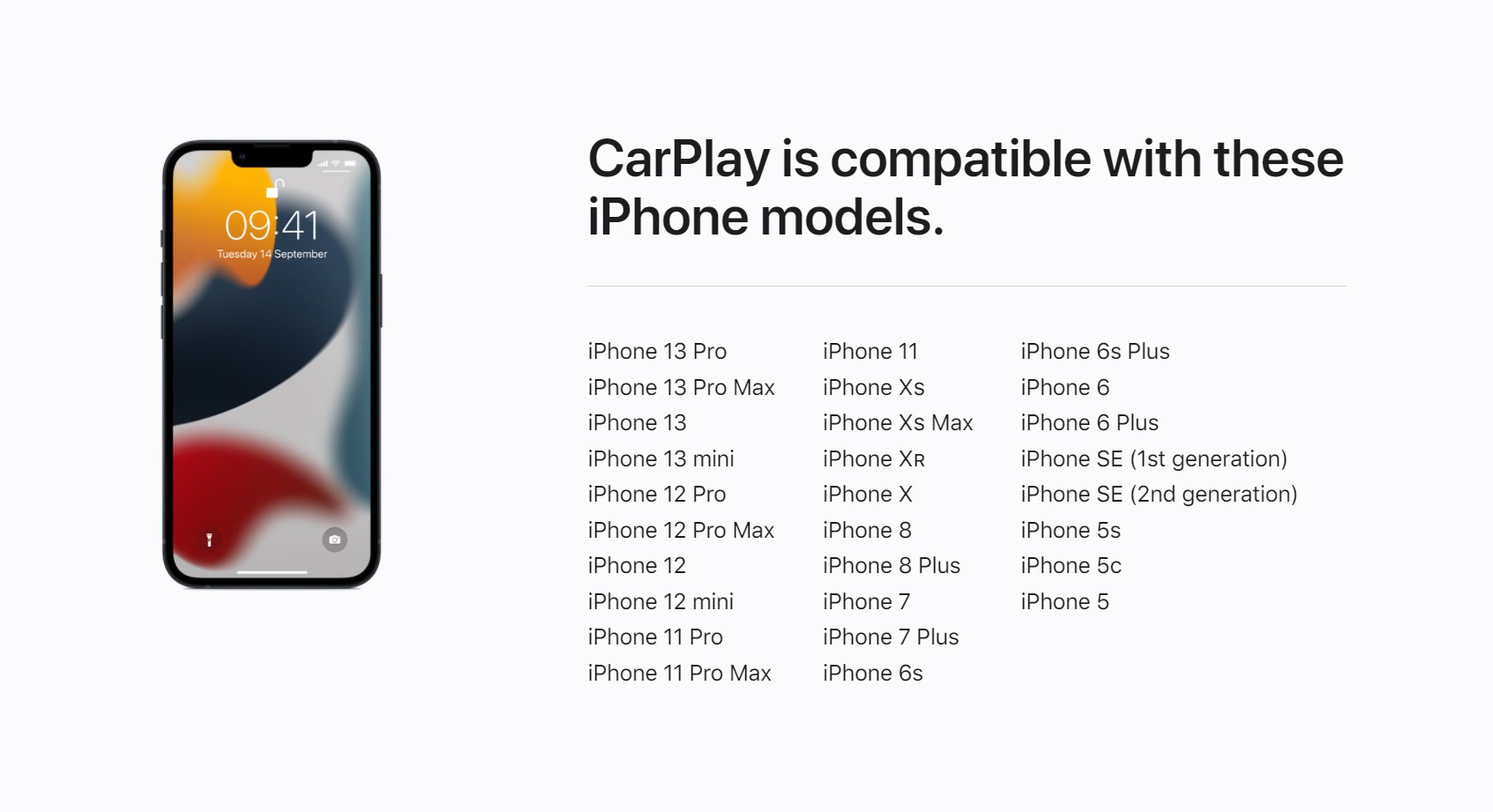
CarPlay works with every iPhone released since the launch of the iPhone 5 back in late 2012. That includes the more budget-friendly devices like the iPhone 5C and first generation iPhone SE, all the way up to the most recent iPhone 13 range.
Pending any major changes to Apple’s in-car strategy, it’s also safe to assume that it will work with all future iPhones — including the upcoming iPhone 14.
CarPlay does not work with iPads or iPods, and it goes without saying that you can’t use it if you have an Android phone.
Which cars offer CarPlay integration?
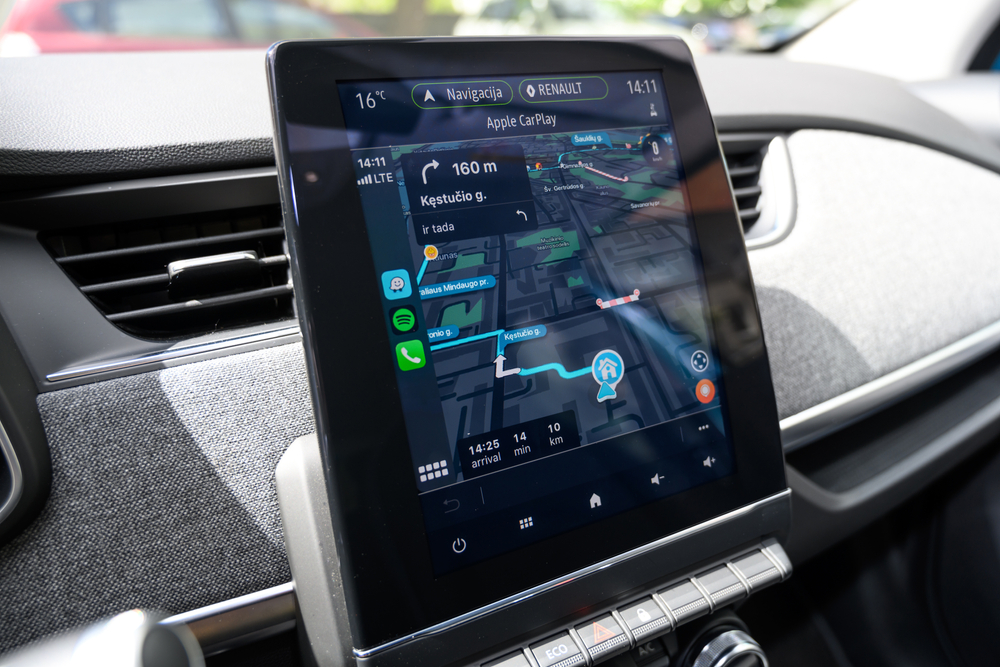
While CarPlay started off as a fairly niche piece of software when it launched in 2014, it’s quickly spread through the car industry. With that in mind, you’ll struggle to find a carmaker that doesn’t support CarPlay in some form, and even fewer modern cars that go without it.
More than 600 cars currently support CarPlay, with support from almost every major car manufacturer. Apple has a fairly comprehensive Apple Car vehicle list showing which automakers support CarPlay, and on which cars. However, it’s always worth double checking CarPlay support for any car you’re interesting in buying.
The obvious exception to this trend is Tesla, which doesn’t support CarPlay or Android Auto. Instead the all-electric car maker offers its own premium connectivity package — complete with navigation, streaming, and remote control of certain features. However, this does cost $10 a month, while CarPlay is free and relies on your existing data plan.
A growing number of cars are also looking to Google for their software needs, running their cars on the new Android Automotive OS. Unlike Android Auto, which is a CarPlay-like app, Android Automotive is built into the car from day one — replacing the need for any in-house software. But what does this mean if you have an iPhone?
The good news is that CarPlay can still work if your car runs on Android Automotive OS. Provided the carmaker supports it for that particular model, you can plug your iPhone in and use it as normal.
Can I get CarPlay in the car I already own?
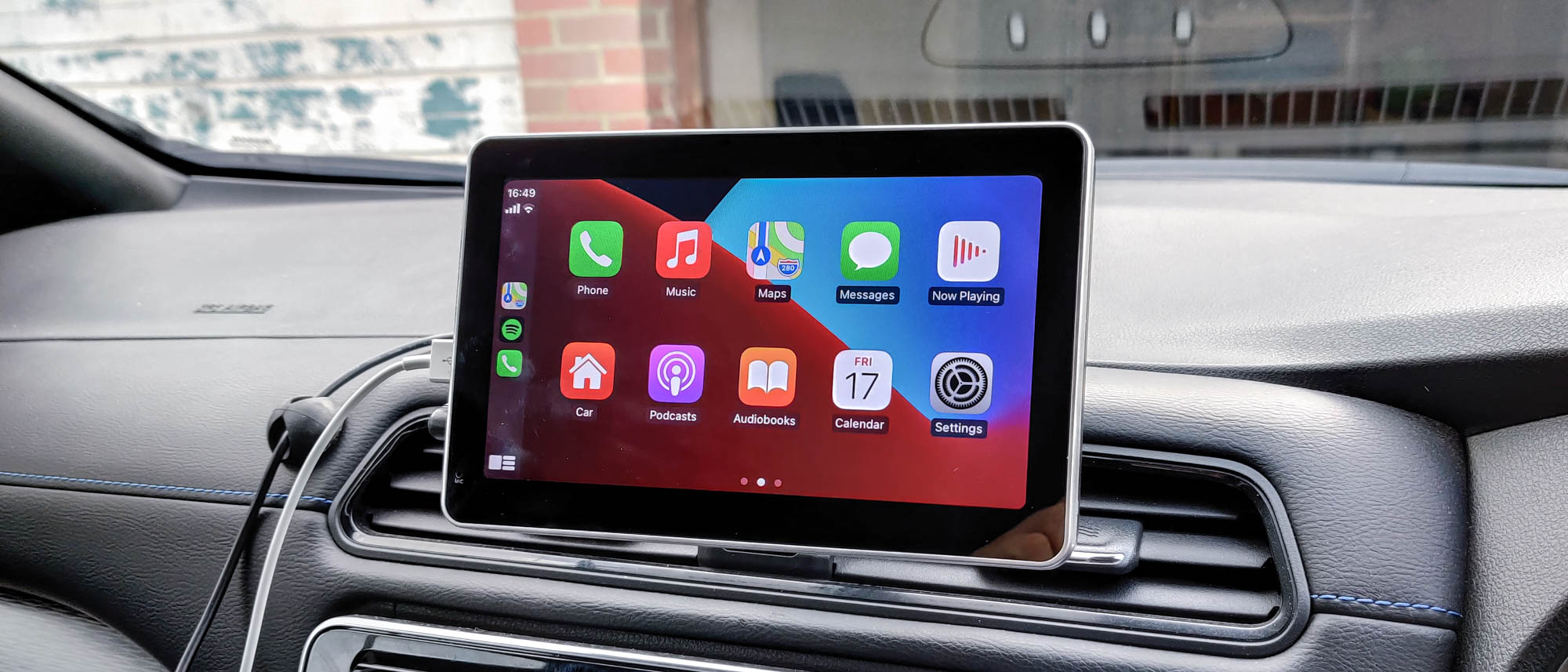
There are a number of different ways to add CarPlay to a car after the fact, but some of them are more difficult than others. The simplest way is to buy a standalone display that supports CarPlay, but doesn’t require any extensive modifications of retrofitting in your car.
It’s worth mentioning that, unlike Android, Apple does not have a dedicated driving mode on iPhones, nor is there a standalone CarPlay app. There is a Driving Focus mode, which cuts off phone-based distractions while you drive, but nothing that lets you use a CarPlay-style interface on your phone.
Devices like the Intellidash Plus are available, and let you plug in your phone and access CarPlay. The functionally it’s no different than if you bought a car with CarPlay built-in, though you will need to find a place to position the screen so it’s both useful and doesn’t obscure your view of the road.
Alternatively, if you’d rather have something a little-more streamlined, you could always swap out your car’s official display/navigation system for an aftermarket unit. You just need to be willing to go to all the trouble of buying a new unit and swapping out your old one.
It also relies on actually being able to upgrade your car, which isn’t an absolute guarantee. You also need to be mindful of is that a lot of aftermarket units require double DIN slot, whereas a lot of older cars may only have one. Single-DIN CarPlay units do exist, but the amount of choice you have is all dependent on your car.
Prices do vary here, but you will be expected to hand over a few hundred dollars at the very least. Units like the Pioneer DMH-1500NEX cost just under $500, while more advanced units like wireless Kenwood Excelon DNX997XR or 10.1-inch Pioneer-WT8600NEX can cost upwards of $1,500.
Of course, you also need to take installation costs into consideration. Because this is the kind of job you should probably leave to the capable hands of a professional. So, realistically speaking, it may well be worth buying a standalone display and save yourself the trouble.
How do you connect your iPhone to CarPlay?
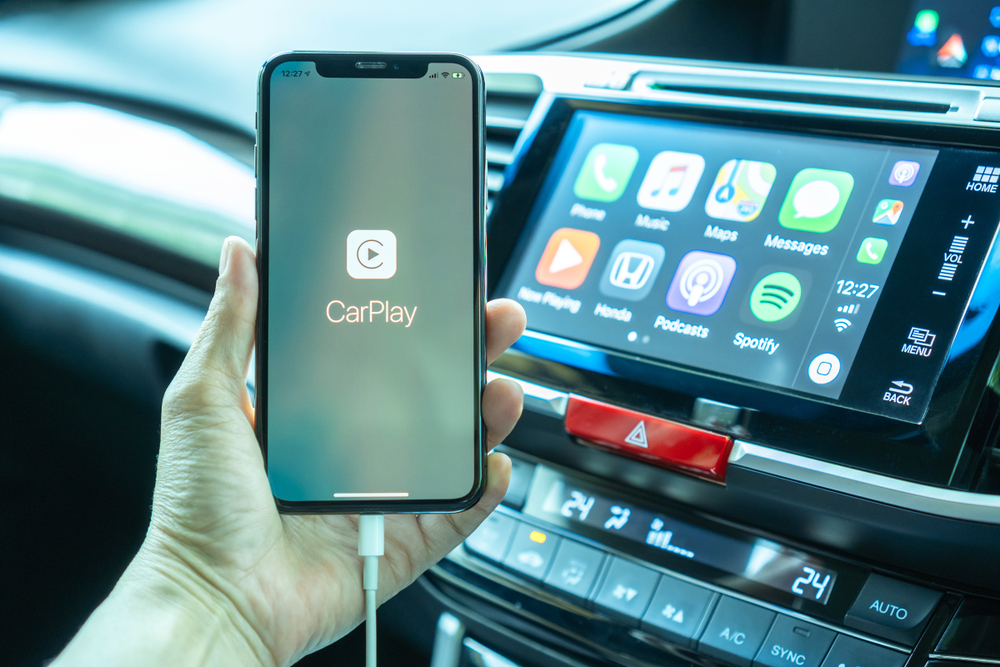
There are two ways to connect your iPhone to CarPlay, the simplest of which is to plug your phone into your car’s USB port with a Lightning cable. Once you’re connected, CarPlay will pop up on your car’s screen, and all your compatible apps will update.
There are also cars out there that support wireless CarPlay. If you have one of them, your phone will prompt you to set up a wireless connection the first time CarPlay initalizes — which will happen automatically with future drives. Here’s a look at how to set up wireless Apple CarPlay.
Note that Apple doesn’t keep an up-to-date list of cars that support wireless CarPlay. Which means you’ll need to do your homework before you buy a car, or resort to a third-party wireless CarPlay adapter.
What apps work with CarPlay?
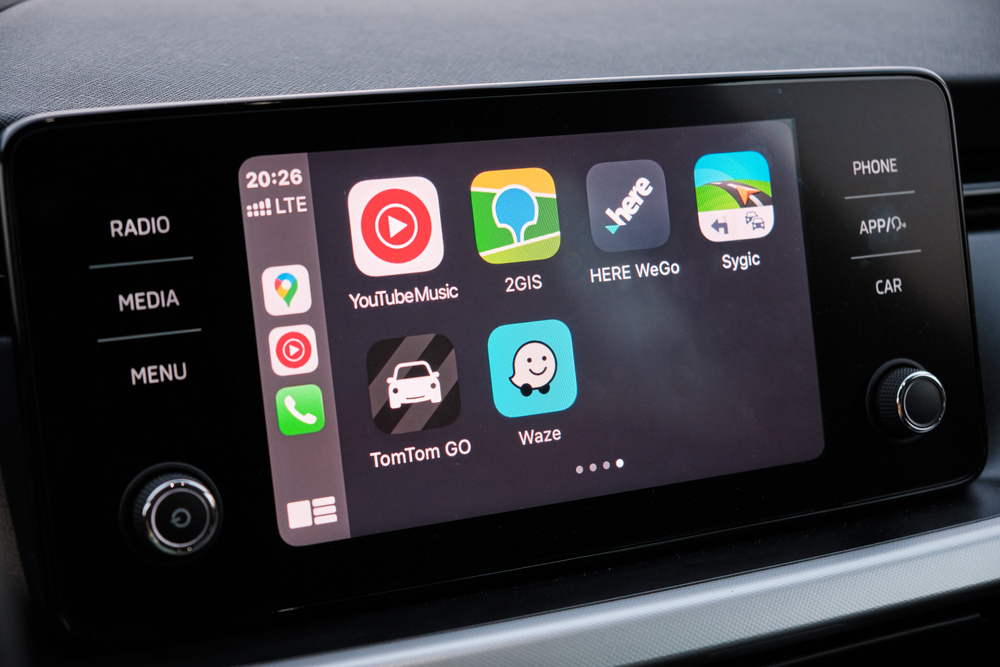
A large number of apps are compatible with CarPlay, and unsurprisingly include many of Apple’s own. Maps, Phone, Messages, Music and so on are all available, but there are a lot more third-party CarPlay apps as well.
While Apple does not offer a comprehensive list of CarPlay-compatible apps, there is a healthy selection of options available. But, considering these apps have to be driving-friendly, you won’t be finding anything that’s too distracting or requires extended eye contact. So no Netflix, no Apple TV Plus, no gaming and so on.
Instead the apps fall into a few basic categories: Navigation, communication and audio. So there’s a range of apps that let you listen to music, podcasts, audiobooks and internet radio, including big names like Audible, Spotify and TuneIn.
Likewise, Google Maps and Waze are both CarPlay-friendly, so you don’t need to use Apple Maps. EV owners will also be able to access apps like PlugShare, in case you need to locate an EV charger in a hurry. And you can make calls or send messages using just your voice via services like WhatsApp.
The easiest way to tell if CarPlay supports a particular app is to plug in your phone and see. Alternatively, searching for ‘CarPlay’ on the app store will offer up some options you may not have considered before — though there’s no obvious way to filter them.
However, if you tend to stick to the big-name apps, you shouldn’t have too many issues.
How is Siri integrated with CarPlay?
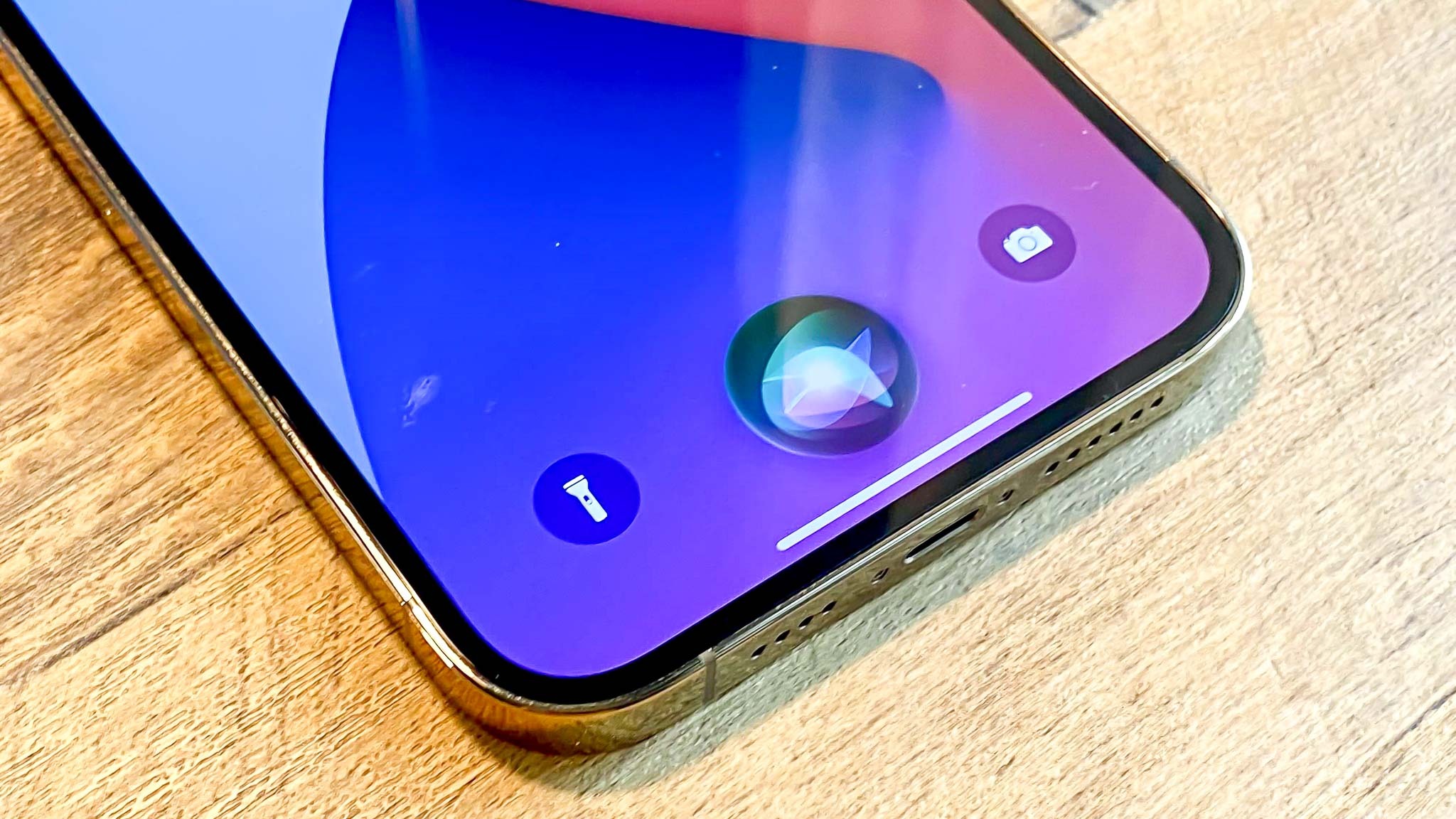
Siri is a very important part of the CarPlay system, since it enables you to control what’s going on using your voice. That way your hands can stay on the wheel, and you won’t be blindly tapping at a touchscreen.
Siri works just like it does when using your phone normally. All you have to do is utter the “hey Siri” wakeup command, and tell it what you need. Whether you need directions to the nearest gas station, control music, or send a text message, Siri can help you out.
However, Siri is an internet-connected tool, and relies on you having an active data connection. And because Siri is linked to the cloud, there may be a few seconds of lag between you giving it commands and them actually happening.
Do you need a cell signal for CarPlay to work?
Yes. Mostly anyway. CarPlay is essentially a different way for you to interact with your phone — nothing more. So if a feature requires an active data connection on your phone, CarPlay isn’t going to change that.
If you accidentally drive into a signal black spot, or you hit your data cap, all those same features will stop working properly. If this happens, you’ll need to rely on your car’s built-in infotainment system instead.
Does CarPlay take control of the dashboard?
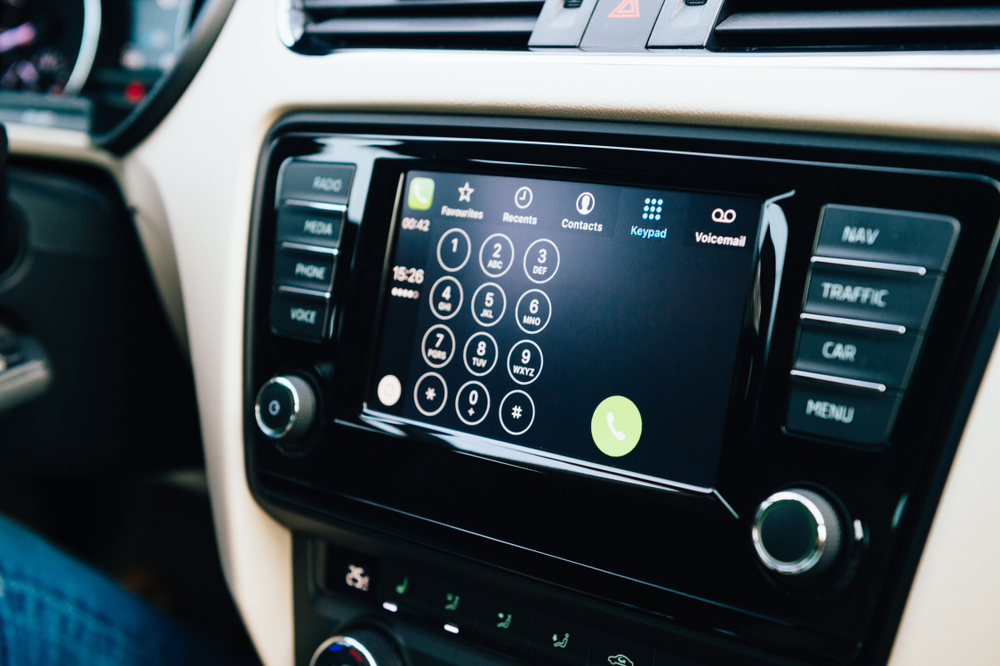
No — mostly.
CarPlay is essentially just an external display for your phone, and Siri can only handle requests that relate to your device. So while Siri can change the volume, it can’t raise the temperature or activate your cruise control. This can be especially frustrating if you need to use the car’s touchscreen to control any of these features.
Fortunately, some carmakers do offer CarPlay in a split-screen mode, ensuring you have access to both your phone and car systems while you’re driving.
Car features are still a firmly separate entity for the time being, and will be until Apple and automakers decide to collaborate on something more advanced. Rumor is that something like this, codenamed IronHeart, is in the works, but it may also have to wait until Apple launches its own dedicated in-car operating system. This would be an equivalent to Google’s Android Automotive OS, which would be built into the car on the production line.
However, that may not happen for a while, especially with the uncertain status of the Apple Car. Given Apple’s habit of refusing to talk shop until a product is announced, don’t expect to hear much about this prospect until the day it arrives.
Do CarPlay-enabled vehicles also support Android phones?
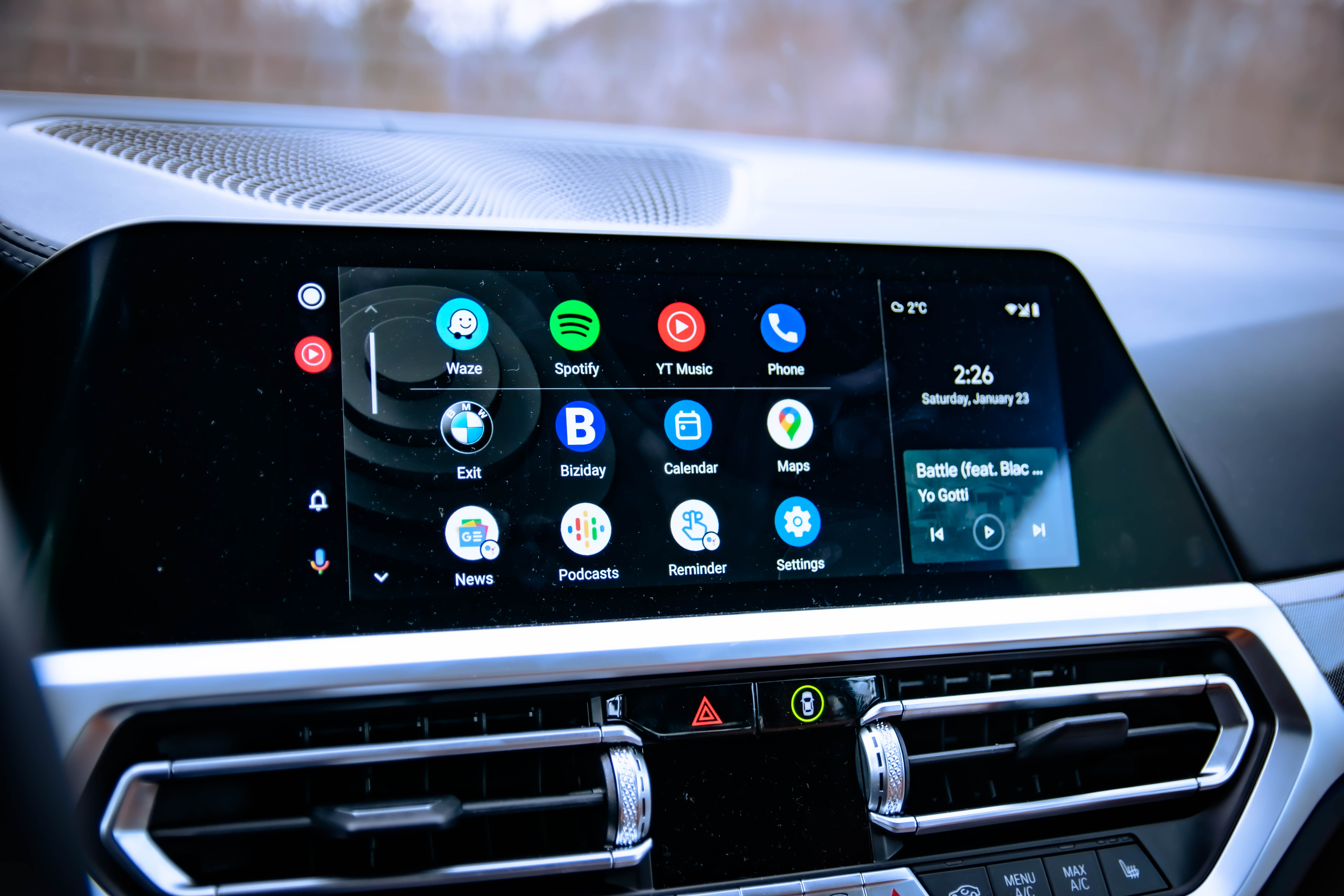
Typically yes, though there are a few exceptions.
In the early days automakers only seemed to offer CarPlay or Android Auto, but not both. However, they quickly realized supporting both was the better option — so the vast majority of them do.
Google has a list of cars known to offer Android Auto support, which you can cross-reference with Apple’s. That way if you use an iPhone, and another person driving your car prefers Android, you can both use the right respective system.
Mini and Rolls-Royce both only support CarPlay, and haven’t announced any plans for an Android Auto rollout just yet. Meanwhile, Bentley and Koenigsegg have Android Auto support firmly in the “coming soon” category, but haven’t revealed any sort of timeline.
Then, of course, Tesla supports neither.
Stay connected with us on social media platform for instant update click here to join our Twitter, & Facebook
We are now on Telegram. Click here to join our channel (@TechiUpdate) and stay updated with the latest Technology headlines.
For all the latest Technology News Click Here
